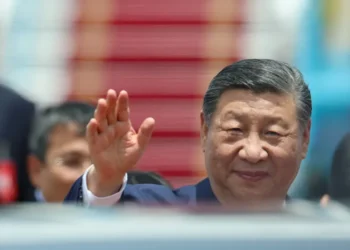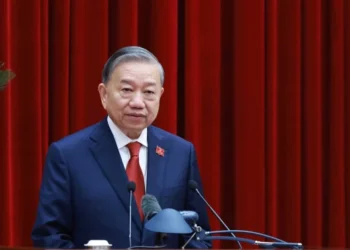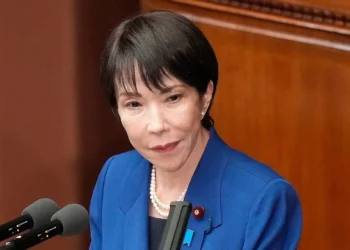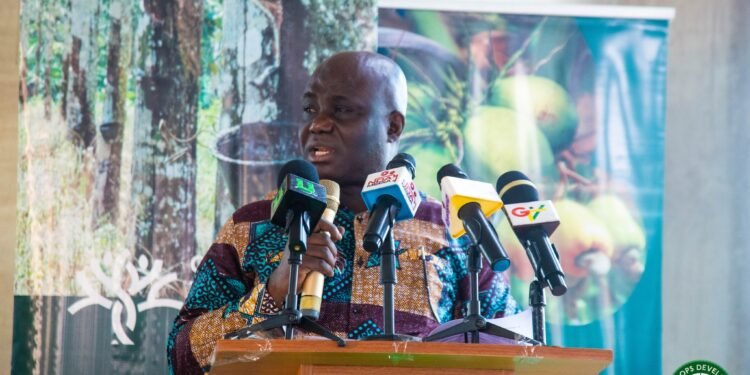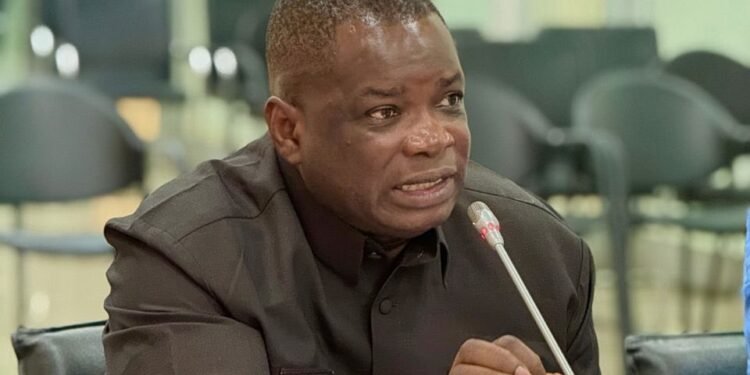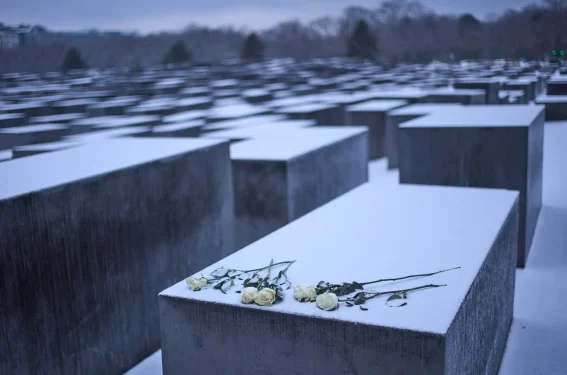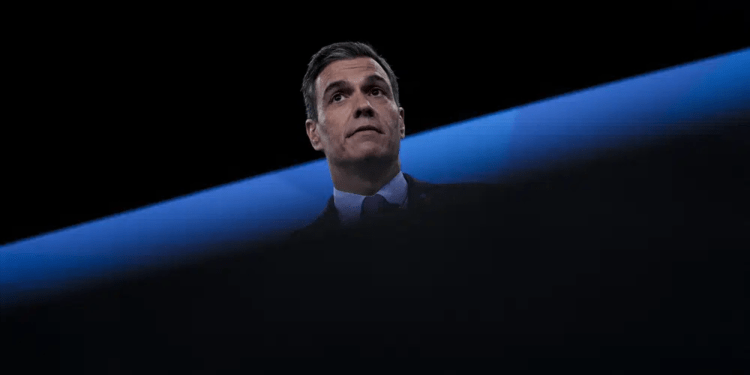The Chinese administration blocked access to Tiananmen Square in central Beijing to commemorate the military crackdown on pro-democracy demonstrators in 1989, which killed many people and outlawed internal discussions and monuments.
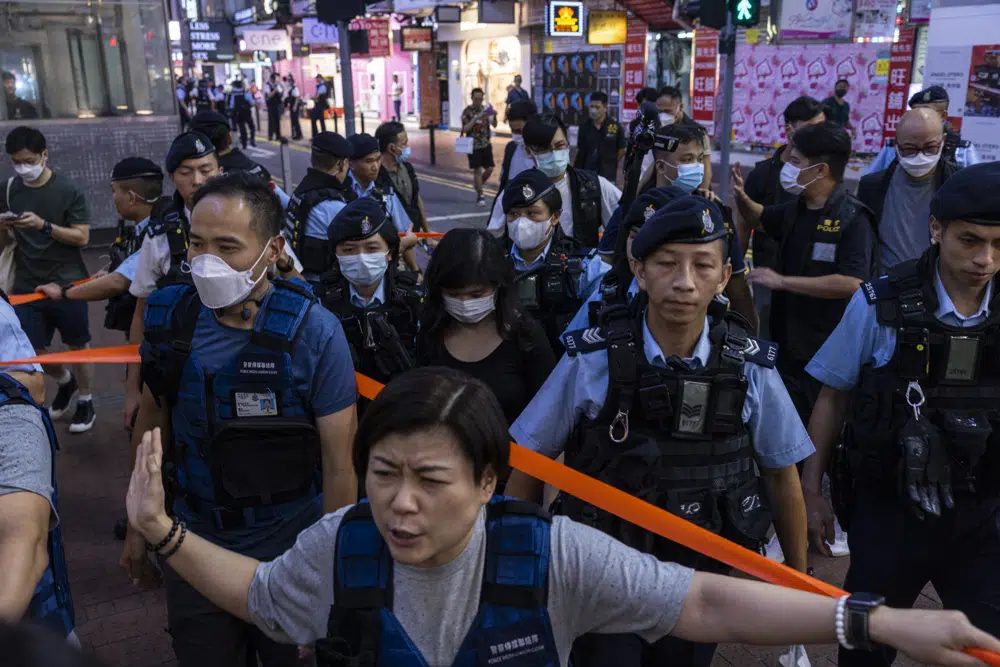
On the night of the anniversary, eight people were accosted in Hong Kong, the last Chinese-controlled jurisdiction, for attending commemorations. This illustrates the city’s shrinking room for free expression.
Police stated that, they apprehended a woman for reportedly obstructing police officers’ ability to do their duties, and detained 23 others on suspicion of breaching public order for a further inquiry.

Many of them were detained by police in and around Victoria Park, a vast open space of gardens and sports fields. The park used to host an annual candlelight vigil for the hundreds or thousands killed, when Army tanks and Infantry descended on central Beijing on the night of June 3 and early June 4, 1989.
In China, weeks of debate by student-led rallies, that drew workers and artists, as well as its brutal end, has long been prohibited. It has also become progressively forbidden in Hong Kong following the implementation of a broad national security statute in 2020, virtually prohibiting anyone from organizing memoral activities.
The death toll from the 1989 riots is unknown, and the Communist Party mercilessly places surveillance on individuals at home and abroad, who strive to preserve the memory of the incidents.

Additional security were observed in Beijing near Tiananmen Square, which has traditionally been surrounded by security checks demanding visitors to produce identity. People walking or riding bicycles on nearby avenues, which runs north of the square, were also stopped and asked to provide identification.
A group of women who their wards in the Tiananmen Square massacre, are demanding for retribution ahead of the anniversary. They have issue a press statement calling for “truth, compensation, and accountability.” Human Rights Watch demanded that, the Chinese government accept the blame for the deaths of pro-democracy protestors.
“The Chinese government continues to evade accountability for the decades-old Tiananmen Square massacre, which has emboldened its arbitrary detention of millions, severe censorship and surveillance, and efforts to undermine rights internationally,” Yaqiu Wang, senior China researcher at Human Rights Watch, claimed.

Hong Kong, a former British colony turned over to China in 1997, employs colonial-era anti-sedition statutes to clampdown on opposition dissents. Amnesty International stated the existence of unconventional voices “demonstrates the futility of the authorities’ attempts to enforce silence and obedience.”
“The shameful campaign of the Hong Kong administration to prevent people from commemorating this anniversary, explains the Chinese central government’s censorship, and is an insult to those killed in the Tiananmen Square crackdown,” Amnesty added.
For the past three years, Beijing-appointed administrators in Hong Kong have barred access to the Tiananmen Square monument, citing public health concerns, but thousands violated Police prohibition to attend the event in 2020.
Despite the easing of nearly all COVID-19 restrictions, the city’s public commemoration was blocked this year by a Beijing-imposed national security statute that jailed or suppressed numerous Hong Kong pro-democracy activists. The law prosecuted three members of a group with subversion, who attempted to plan the vigil. The organization was dissolved in 2021, when authorities accused it that, it was being investigated for working to the benefit of international groups.

Following the passage of the security law in the aftermath of massive demonstrations in 2019, Tiananmen-related visual spectacles, including sculptures at universities, were also demolished. Recently, books about the occurrences have been removed from public libraries.
When asked if it is allowed to publicly grieve the crackdown as a person, Hong Kong leader John Lee explained if somebody violates the law, “of course the police will have to take action.” Many Hong Kong residents, fearful of what government may consider rebellious, attempted to commemorate the occasion in low-key ways.

A memorial took place in Taipei, the capital of Taiwan, a self-governing island democracy that China claims ownership, potentially by force. Under heavy rain, almost 500 people gathered to light candles, listened to speeches and shouted slogans.
Kacey Wong, an artist who is one of the countless people from Hong Kong, who have relocated to Taiwan, said that over thirty years of celebrating the 1989 riots, had made it a way of life. Wong stated that an artist buddy, Sanmu Chen, was held together with others while planning to create an outdoor performance in Hong Kong’s Causeway Bay.
READ ALSO:Police Clash With Demonstrators Leave 15 Dead In Senegal






